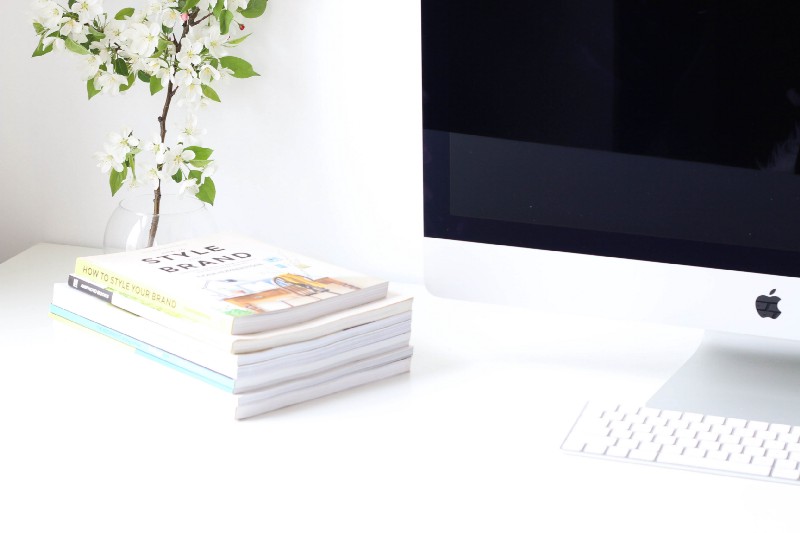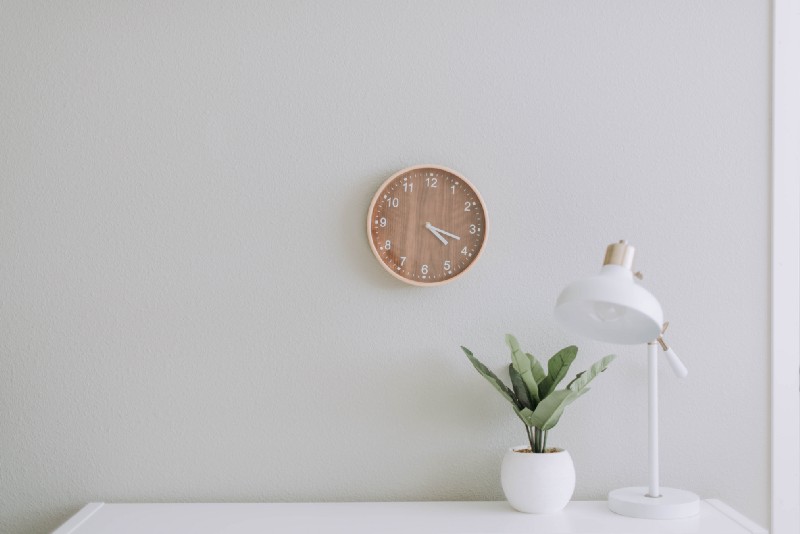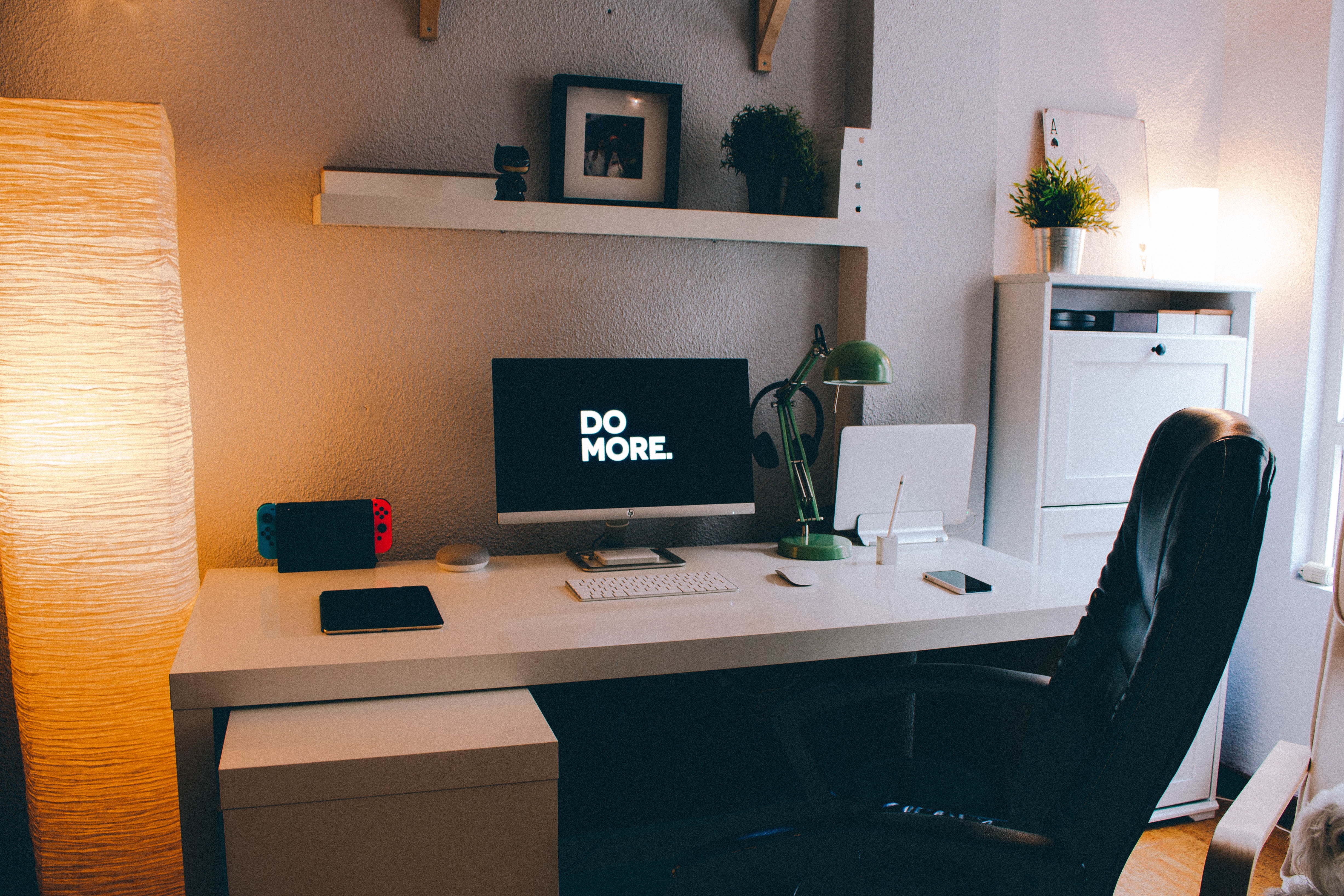We all want to live our best life. But often, work gets in the way. As freelancers or entrepreneurs working from home, especially, we tend to blur the boundaries between living and working. I’ve been self-employed for nearly 20 years and have certainly been there. In the last few years, I’ve made an effort to focus on my work-life balance. I’ve tried out, and want to share, these practical tips and tricks to keep you focused and achieve more in your working day. Why? Because it’ll improve your quality of life — a lot!
New Zealand’s Productivity Commission has found that increased productivity leads to improved well-being. No wonder — if we finish our work quicker, we’ll free up more time to do things we love: pursue that new hobby, go hiking with family, meet friends for a coffee, write that novel you’ve been planning since 1995, or whatever floats your boat. This is something we are probably all striving for to improve our quality of life.
Work to live, don’t live to work.
So let’s investigate how to stay focused on the job at hand and how to increase your productivity as a solopreneur. We will look at simple yet effective methods you can apply in your day-to-day work, and we will learn about software programs that can assist you in managing your time and boosting your productivity.
Methods
What methods or techniques have you used in the past to organize your time or workspace better? Try to think of the reasons why these techniques were, or were not, successful.
Let’s take a look at some simple yet effective methods you can apply to better organize your workspace and your time. They worked for me, so they can work for you too!
Declutter your work area
Think about your home and office space. Are there piles of paper everywhere? Are you meeting your deadlines? Are you paying all your bills on time? Can you easily find your tax papers, invoices, customer POs, or style guides whenever you need them? What type of filing system are you using? By the same token, can you always find the files you need on your PC with ease? And, most importantly, do you regularly back up all your data because you know your PC is bound to crash just minutes before that all-important deadline?
If all that sounds overwhelming, don’t worry. There are some simple steps you can take towards overcoming the clutter and organizational challenges that trouble the best of us.
Although chaos can foster creativity, a clean desk is definitely not a sign of an empty mind! Don’t believe the false notion that a cluttered work area means you look busy, and that if you look busy, then you must be productive. Being active is not the same as being productive.
Studies carried out by the Princeton University Neuroscience Institute have shown not only that our brains like order and that constant visual reminders of disorganization reduce our ability to concentrate, but also that when participants cleared clutter from their workspace, they were better able to focus and their productivity increased.

I must admit, I was the worst offender and often couldn’t even see my desktop under all those papers and bills. But I just didn’t know how to get started and was never brave enough to tackle the mountain of papers. So if that’s how you feel, I totally sympathize! When we moved house, it was finally the perfect opportunity to declutter and start afresh. I sorted through all papers and shredded most of them. I mean, there was no way I’d ever need a phone bill from 2017 or the user manual for my external hard drive ever again!
Don’t ask yourself, “Is there a chance that I will need this one day?” because the answer is almost always yes. Instead, ask yourself, “Should I need this, do I know how to find it?” In my case, I realized all phone bills are easily available online so there’s no need to keep the hard copy, and I figured that user manual is probably also available on the manufacturer’s website should I ever need to look something up.
The one activity that wastes most of our time is searching for papers we know we have but that we can’t find. If a piece of paper is important enough to keep, it is important enough to file in a place where you know you can locate it with ease. Otherwise, send it off to the shredder! It was so satisfying to see the piles of paper disappear and my sanity return a bit more with each document — that alone makes it worthwhile!

Set goals
Before you can develop plans, you need to know what it is that you want to accomplish. You need to be clear about your goals or targets, how you want to accomplish them, and what resources you have in terms of time, money and materials. So go ahead and set some targets for yourself. They need to be tangible targets so you can start working towards achieving them.
Perhaps you’re already in the habit of setting goals for yourself. You may have several ideas in mind, such as landing a large project, acquiring two new clients by the end of the month, passing an exam, etc.
But do you have a systematic way of going about setting specific goals, or do you just say to yourself, “I’m going to try to double my income this year,” or, “I’m going to send 20 marketing emails out every day,” or “I’m going to get up early and exercise before I start working”? These are great goals, but they’re not specific enough to keep you motivated.
I used to always wing it and just do things on the fly, with generic goals in mind. But once I wrote down goals in a notebook and made them specific, they instantly became more tangible and it felt like I was accountable for my actions (or lack of). I found it hugely motivating to have targets, such as “Get up at 6.00 and meditate before checking emails”, or “2.00 to 3.00 PM marketing: email 5 prospects”. I found including numbers and times makes me instantly more productive because I now have a specific plan to follow, with no room for confusion or time-wasting. And no room for excuses.
Keep a master calendar
An up-to-date master calendar can be your most useful planning tool. If you prefer an electronic calendar, always ensure that it is backed up regularly so that you don’t lose your data.
It is important to identify and operate within two time frames: short- and long-term. Anticipating events will help you to get things done in the short term, which in turn contributes to achieving your long-term objectives. So make sure you include you short-term and long-term goals on your master calendar with specific dates.
My master calendar includes trade fairs my clients will attend, for example, and my shorter-term planning activities in the lead-up cover corresponding steps such as emailing them to offer specific services relating to the upcoming trade fair (or just wish them good luck and remind them I’m here).
Identify techniques that work for you
Some freelancers swear by certain techniques that allow them to focus fully on a specific task for a dedicated period of time without interruptions or distractions. A great example of such a method is the Pomodoro Technique. Here, you work in focused bursts for 25 minutes (or any length of your choice), followed by ten minutes of break time when you can get a cup of coffee, check your emails, post a Facebook update or stretch your legs.
Personally, I’ve found I’m most productive when I schedule 50 minutes with ten-minute breaks for social media or to make a fresh coffee. That’s not surprising according to a study published in the Journal Cognition, which has shown that short breaks in between periods of concentrated working keep you more focused.
Delegate
Don’t waste your time doing things that somebody else can do. Save your time and energy for those things which you are uniquely qualified to do and that you have to get done as part of your role. There is nothing wrong with delegating things in order to ease up your workload. You really don’t need to wash those dishes when you should be working on your proofreading project, or visit your auntie in hospital when you have an urgent deadline coming up.
Your partner, friend, sister, or cousin will usually be more than happy to step in, you just need to ask them. I have zero problems leaving the laundry or ignoring housework when I have work to do. Thankfully, my husband gladly helps out, so if you have a family member or housemate who can get stuck in, don’t feel obliged to take care of everything yourself. Just because you work from home doesn’t mean you’re responsible for everything around the house. The sooner you make that clear to your cohabitants, the better for your productivity.
There was an important job to be done and Everybody was asked to do it. Everybody was sure that Somebody would do it. Anybody could have done it, but Nobody did it. Somebody got mad about it because it was Everybody’s job. Everyone thought that Anybody could do it, and Nobody realized that Everybody wouldn’t do it. It ended up that Everybody blamed Somebody when actually Nobody blamed Anybody.
Software
Use scheduling tools
There’s no shame in relying on the technology available to us today in order to stay on top of things. Most freelancers, myself included, use one or more scheduling tools in their day-to-day operations:
- A daily to-do list (manual or electronic, e.g., TeuxDeux; or check out the 20 best online to-do list programs for freelancers) — I like to use good old pen and paper and put the list next to me on my desk; it makes me feel accomplished and motivated when I can physically tick items off
- A planner with at least one week at a glance (paper or electronic) — again, I like my paper diary and have it on my desk when I’m at home and in my bag when I’m out and about
- A monthly project list (e.g., spreadsheet) — I used to use Excel, now I tend to stick to my project management software, see below
- Project management software (here is a useful list of ten project management tools for freelancers) — I use Avaza, which doubles as an invoicing software (and which, incidentally, is fantastic for freelance professionals working with different currencies)

Block out distractions
If social media is your downfall and you are known to check your Twitter feed every two minutes, try a drastic measure and install a social network blocker such as Freedom. This allows to you to block distracting websites and apps of your choice (in my case Facebook!) to stay focused on what matters most. I know I easily get distracted by social media — and “just quickly checking something” can lead to half an hour of mindless scrolling — so it helps to keep it off limits while I’m trying to focus on work.
A study carried out by the University of California Irvine has found that those participants who used blocking software assessed their productivity significantly higher than those without blocking software and found that they could focus much longer. The same study also confirmed that people who benefited the most from blocking software were those who were usually most distracted by social media. If that isn’t evidence enough to give it a go!
Keep your notes together
If you are out and about a lot and tend to get the best ideas on the move, use an app such as Evernote, which lets you sync all your notes and bookmarks across all your devices. I have it installed on my phone and desktop, and it syncs all my notes across both, which is fantastic and saves you time as you won’t have to duplicate your notes. I also like to use it to jot down ideas I get while out and about.
Track your time
To establish how much time you are spending on a project, or how many minutes a day you spend on social media or other programs, I highly recommend downloading a free copy of Time Stamp. It has a simple, clean interface and enables you to time how long you spend on a task, including features that let you take ‘slack time’ for a phone call or break.
You can also export your data using ASCII or XML, and customize your report. Although its look and feel is a bit dated, it does what it says on the tin. I love TimeStamp and have been using it for many years. It’s helped me track my time spent on projects, or for research to work out how much to bill for similar projects next time, and on what exactly I’m spending most of my productive and non-billable time.
Review your online behavior
Very often, we may not even be aware that we are wasting time on the internet or with activities that are not productive. This is where a program called RescueTime comes in very handy. It tracks your online behavior and gives you a detailed report telling you on what websites and applications you spend how many percent of your time, how productive you were and whether you’ve reached the goals it lets you set. It also allows you to set an alarm, for example, if you’ve spent more than two hours on Facebook.
I must admit, I was quite shocked to see how much time I was wasting when I first installed it. It’s certainly helped me think about my priorities and get my act together!
Final thoughts
These tips and programs are what helped me personally. I’m therefore confident they can work for all solopreneurs, so start putting some of these tips into practice today, and watch your productivity increase. As a result, you’ll get your work done faster and can enjoy some time off to do other things that you enjoy and that are good for your mental health. And surely that’s something we should all strive for. Remember: work to live, don’t live to work!
Since focusing more on my productivity, I’ve been able to take more breaks, and I even finally managed to watch a whole series of a TV show on Netflix this year (Suits, if you’re wondering) — after having “no time” to relax or watch TV for many months before that. I thought I was “always working” until I realized how much time I was actually wasting on other things or by not maximizing my productivity.
I’ve definitely been more relaxed and increased my general well-being since implementing all those aspects and tools. And if it works for me, it’ll work for anyone! Give it a try, you deserve it— and your future self will thank you.


